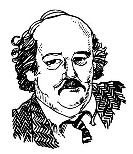(Syndicated to Kansas newspapers March 30, 2015)
 Every now and again, a little phrase mesmerizes lawmakers. This year, that phrase appears to be “consultant study on efficiency in government.”
Every now and again, a little phrase mesmerizes lawmakers. This year, that phrase appears to be “consultant study on efficiency in government.”
The idea: Kansas is probably spending money on programs or assigning similar duties to different agencies or requiring certain reports or fees or something just because, well, that’s how we’ve always done it here.
The idea expands: We’ll spend up to $3 million next year to hire a consultant—presumably not from “here”—to look at how Kansas government operates and whether there are efficiencies that can be found by private contractors who don’t drink the local water.
That consultant contract for government efficiency concept caught fire in the House Appropriations Committee; it so lit up the eyes of those lawmakers that the Senate put the provision in its Mega budget bill that will finance most of state government. No, that $3 million item won’t be printed in red in the bill, but it is likely to be the most-read section of that bill and may draw some votes for it.
Those “not from here” consultants may turn up some cost-saving ideas that haven’t been thought of by Kansans. There are undoubtedly efficiencies that newly hired workers have discovered, and their agency managers either steal as their own ideas or dismiss because it’s a change, and many don’t care for change. Or that suggestion might work in other divisional offices, but not the one where it was first thought up.
But, state government is one of those institutions that tends to pave the cow path rather than consider new ways to get the cattle to the pond.
The concept is that after that $3 million study—which will of course be put out for bids, but now that most legislators seem comfortable for some reason with the $3 million number, well, the bids will probably be close to that sum—we’ll learn of enough big and little spending cuts to save dozens or hundreds of times that much.
Opponents in this tight budget year, which is already seeing its focus shift from spending to the taxes that will have to be raised to support that spending, figure that Kansas already has people on staff who can do that hard look at efficiencies.
Supporters of that outside look at state agency operations and management maintain that the local folks haven’t found enough new, startling and politically acceptable economies to balance the budget, so they need help. In a similar consultant-led scrubbing of state operations in North Carolina this year, the consultants identified what they say could pencil out to more than $600 million in savings in the next decade.
That is, of course, if North Carolina executive and legislative branches buy into the suggestions and enact them after, presumably, weighing the political backlash from suggested changes.
In Kansas, there’s that same issue: You have to wonder whether any changes that those “fresh eyes” suggest are going to be mechanically or politically feasible. Or, whether the Legislature will feel duty-bound to adopt at least $3 million worth of those savings suggestions just to break even on the deal.
Who knows? Maybe if Kansans could just hand their income tax payments to a Highway Patrol trooper who stops them, we’d need one less employee in the Department of Revenue? Or, do we really need a Secretary of State in years when there are no elections?
It might be interesting, but would the money be better spent dredging a reservoir…or could we lay off the meat inspectors if restaurant customers would just sign a hold-harmless agreement when they order a meal?
The idea is trendy—at least in the Kansas Legislature, which probably tells you something about the Legislature—but we’ll see where it goes…
